
Patients treated with ofatumumab (Kesimpta; Novartis) demonstrated significant decreases in absolute and percent CD19 counts at day 5 of treatment, which persisted through the 90-day period.

Patients treated with ofatumumab (Kesimpta; Novartis) demonstrated significant decreases in absolute and percent CD19 counts at day 5 of treatment, which persisted through the 90-day period.
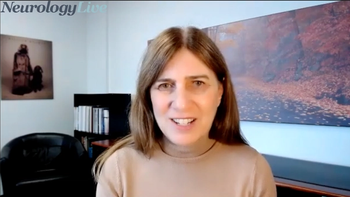
The neurologist and assistant professor at the University of Toronto provided insight on the differences between outcome measures for Alzheimer disease and how they factored into a new item-level analysis of aducanumab (Aduhelm; Biogen). [WATCH TIME: 3 minutes]
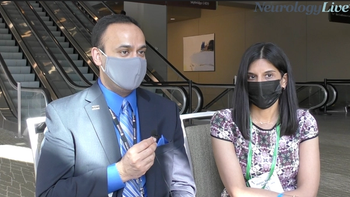
The chair and vice-chair of the Headache and Facial Pain Section of the American Academy of Neurology provided insight on projects they feel are needed to advance the care of patients with migraine-related disorders. [WATCH TIME: 4 minutes]
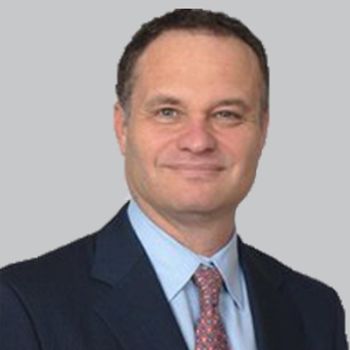
Rami H. Ben-Joseph, PhD, executive director, Jazz Pharmaceuticals, provided insight on the real-world CV-BOND study that evaluates the cardiovascular burden in patients with narcolepsy.
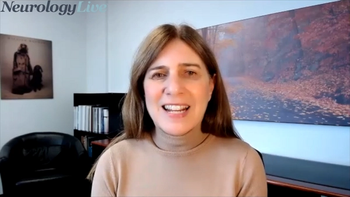
The neurologist and assistant professor at the University of Toronto detailed findings from a new analysis that supports meaningful treatment effect with aducanumab in Alzheimer disease. [WATCH TIME: 6 minutes]
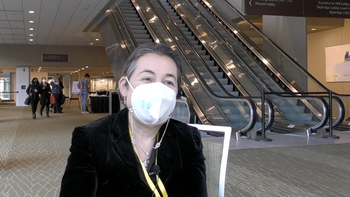
The codirector of Epilepsy Clinical Trials at NYU Langone spoke to the progress that’s been made in treating refractory epilepsy and her hopes for the future of drug development in this area of medicine. [WATCH TIME: 5 minutes]
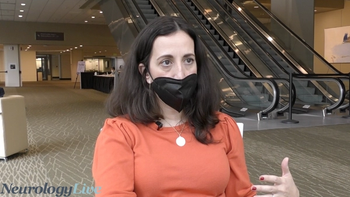
The professor of neurology at NYU Langone Grossman School of Medicine discussed what high-potential repurposed medications could be an option to treat symptoms of COVID-19 and the realistic possibility of clinical trials. [WATCH TIME: 4 minutes]
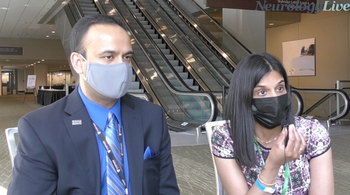
The chair and vice-chair of the Headache and Facial Pain Section of the American Academy of Neurology discussed some of the key research needs for migraine care going forward. [WATCH TIME: 3 minutes]
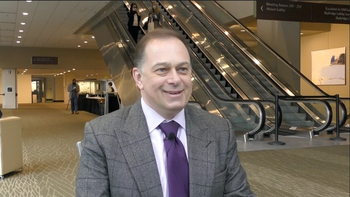
The clinical research director of the UCSF Multiple Sclerosis Center discussed the recently presented analysis on ublituximab’s effect on disability in relapsing MS and the critical need to focus on improving quality of life. [WATCH TIME: 4 minutes]
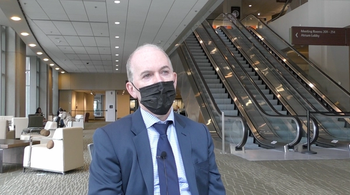
The medical director and chief medical officer of the New England Center for Neurology and Headache discussed notable data from the STEMTRA trial, and the progress made in the field of regenerative medicine. [WATCH TIME: 2 minutes]

As a primary investigator for fenfluramine’s pivotal phase 3 program, Kelly Knupp, MD, MSCS, FAES, provided insight on new results presented at AAN 2022, as well as the positive ripple effect its recent approval brings to patients with Lennox-Gastaut syndrome.

In addition to demonstrating significant differences in slowing functional decline, those on gamma sensory stimulation also demonstrated a significant reduction in brain atrophy relative to the sham group in the OVERTURE study.
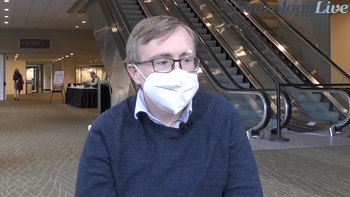
The assistant professor of neurology at the University of Pennsylvania discussed stroke risk among patients with COVID-19 and the need to seek neurological consultation. [WATCH TIME: 3 minutes]

Following their data presentation on AMX0035 at AAN 2022, Justin Klee and Josh Cohen, the co-CEOs and co-founders of Amylyx Pharmaceuticals, shared their perspectives on the agent.

In addition to significantly less disability observed in tenecteplase-treated patients, this group was also administered treatment 9.40 minutes faster than those on alteplase.
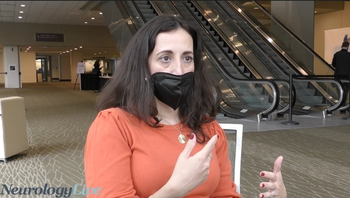
The professor of neurology at NYU Langone Grossman School of Medicine broke down the knowns and unknowns about long-term changes related to COVID-19, their legitimacy, and associations with neurodegenerative disorders. [WATCH TIME: 6 minutes]

Data presented at the 2022 AAN Annual Meeting from the ALITHIOS and KYRIOS trials suggest that ofatumumab (Kesimpta; Novartis), an anti-CD20 therapy, is safe with up to 4 years of treatment and does not prevent the mounting of an immune response to mRNA vaccines.

After showing several significant differences between placebo, the company has planned a phase 3 study that will assess the therapeutic in a cohort of 230 adults with FSHD.

Test your neurology knowledge with NeurologyLive®'s weekly quiz series, featuring questions on a variety of clinical and historical neurology topics. This week's topic is the history of the American Academy of Neurology.
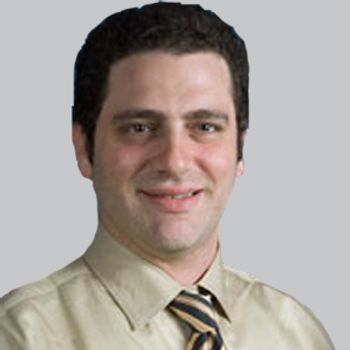
Among triptan non/past use and current use patients, investigators observed refill decreases of 15.3% and 16.8%, respectively, in the 9 months following rimegepant treatment.

Mind Moments®, a podcast from NeurologyLive®, brings you exclusive interviews with Jennifer Frontera, MD; Stephen Krieger, MD; Peter McAllister, MD; Kelly Knupp, MD, MSCS; Bruce Cree, MD, PhD, MAS; Shrujal Baxi, MD, MPH; and Indu Subramanian, MD. [LISTEN TIME: 32 minutes]
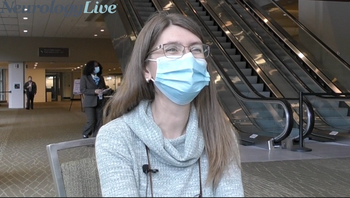
The pediatric neurologist and epilepsy specialist at Colorado Children’s Hospital discussed new data presented at AAN 2022 on the use of recently approved fenfluramine in patients with Lennox-Gastaut syndrome. [WATCH TIME: 3 minutes]

As a result of treatment with the Vercise Genus DBS system, patients reduced their use of anti-parkinsonian medications while maintaining improvements in quality of life.

Following the switch to ubrogepant, more than half of patients with migraine had reduced use of triptans and more than one-third of patients had reduced use of anti-inflammatory drugs.

The clinical research director of the UCSF Multiple Sclerosis Center offer his perspective on the 3 available agents for the treatment of patients with neuromyelitis optica spectrum disorder. [WATCH TIME: 2 minutes]
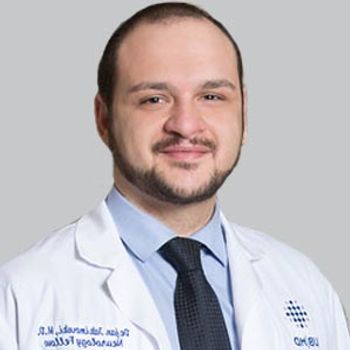
Dejan Jakimovski, MD, PhD, research assistant professor, Buffalo Neuroimaging Analysis Center, discussed his presentation at AAN 2022 on the associations between cerebral hypoperfusion and increased axonal pathology in MS.
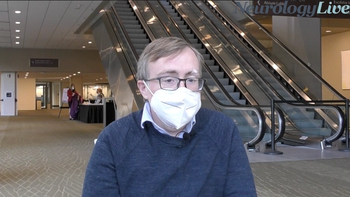
The assistant professor of neurology at the University of Pennsylvania discussed the similarities observed between the results of neurological exams in patients with COVID-19 vs other respiratory infections. [WATCH TIME: 3 minutes]
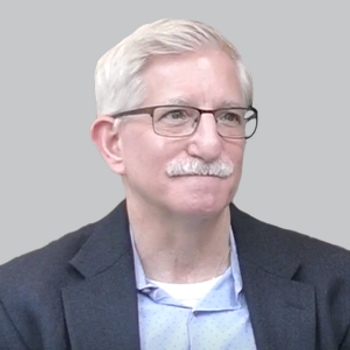
Seth M. Keller, MD, chair of the Section for Adults With IDDs at AAN, shared his perspective on the state of care for these individuals and the need to improve the difficulties they face when transitioning out of pediatric care.
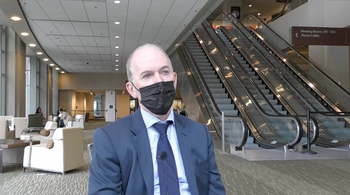
The medical director and chief medical officer of the New England Center for Neurology and Headache spoke to the phase 2 STEMTRA trial results of the stem cell treatment SB623. [WATCH TIME: 4 minutes]

All patients received 100% of the intended stimulations, with no reported deaths, stimulation site reactions, or any cases of acute coronary syndrome or symptomatic intracerebral hemorrhage.